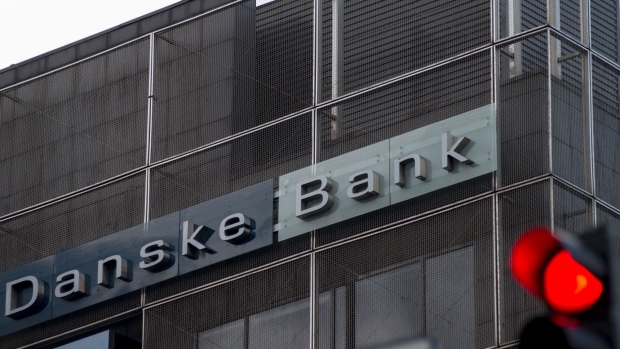Apr 19, 2021
CEO Debacle at Danske Bank Draws Warning From Shareholders
, Bloomberg News

(Bloomberg) -- Danske Bank A/S has once again lost a chief executive, ushered out under yet another cloud of scandal. Denmark’s main shareholder group says the question now is whether there’s such a thing as a qualified CEO with a perfectly clean record.
The biggest Danish bank stunned investors on Monday when it revealed it was parting ways with Chris Vogelzang, its third CEO in as many years. The 58-year-old is leaving Danske after becoming the subject of an investigation tied to his former employer, ABN Amro, and its alleged failure to live up to anti-money laundering laws.
Read: Danske Bank CEO Quits After Being Named in ABN Amro Probe
Mikael Bak, the head of the Danish Shareholders’ Association, says Vogelzang’s departure is “regrettable.” He also says it’s possible that the modern-day “code of ethics, in a way, makes it difficult to recruit top managers.”
“It’s good for society that the ethical judgment is tough,” he said. “But when it becomes so tough that it limits the number of candidates for top managerial positions, it may become problematic from a shareholder’s point of view.”
Danske’s board chose Vogelzang back in 2019, after a drawn-out and difficult process. The bank, which is itself being investigated in the U.S. and Europe for its role at the center of a vast Estonian laundering scandal, had fired Thomas Borgen as CEO in late 2018. Efforts to get Danske’s chief financial officer promoted to the top job backfired when the Danish regulator said he wasn’t experienced enough. An interim CEO was then kicked out after he got caught up in a separate scandal.
‘Very Careful’
Vogelzang was thoroughly vetted, according to Chairman Karsten Dybvad, whose predecessor was ousted for failing to prevent Danske’s laundering scandal. “We really looked into everything at that time. We were very careful.” So news of the Dutch criminal investigation was a “surprise,” Dybvad said by phone.
Read: Ex-ABN Banker Running Danske Says He Knows Nothing of Dutch Case
Danske’s board has now promoted its chief risk officer, Carsten Egeriis, to the top job. The 44-year-old former Barclays Plc CRO points out that he’s had “more than 20 years of experience across various different financial services and institutions.”
“I’m very comfortable in the work and the decisions that I have done in that career so far,” Egeriis said by phone. Dybvad said the Danish regulator has already told Danske that Egeriis can be CEO.
Denmark’s financial laws and regulations, including those guiding qualifications for executives and board members, have been tightened considerably since Danske’s money laundering scandal erupted in late 2018. The bank admitted in September of that year that a large part of 200 billion euros ($240 billion) in non-resident funds that flowed through a now-shuttered Estonian unit was suspicious.
Denmark’s government would be willing to look into making changes to existing financial legislation if the regulator deems it necessary, said Olav Hav, a spokesman for the ruling Social Democrats on the parliamentary committee overseeing bank laws.
“If the Danish FSA sees a need to make adjustment to rules, I am confident that both parliament and the government will listen very closely to that,” he said. The regulator declined to comment.
Meanwhile, Hav said that it’s “a concern that people with the necessary experience to enter Danske Bank at this level can only be recruited among people working very closely to the thin ethical line in the international world of finance.”
©2021 Bloomberg L.P.